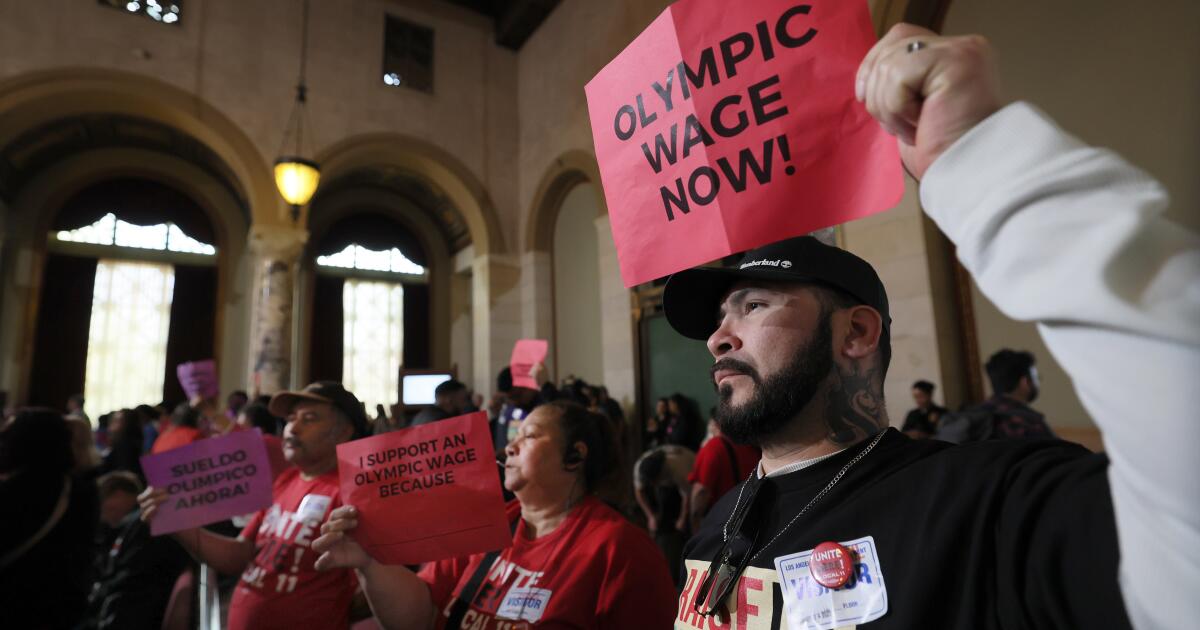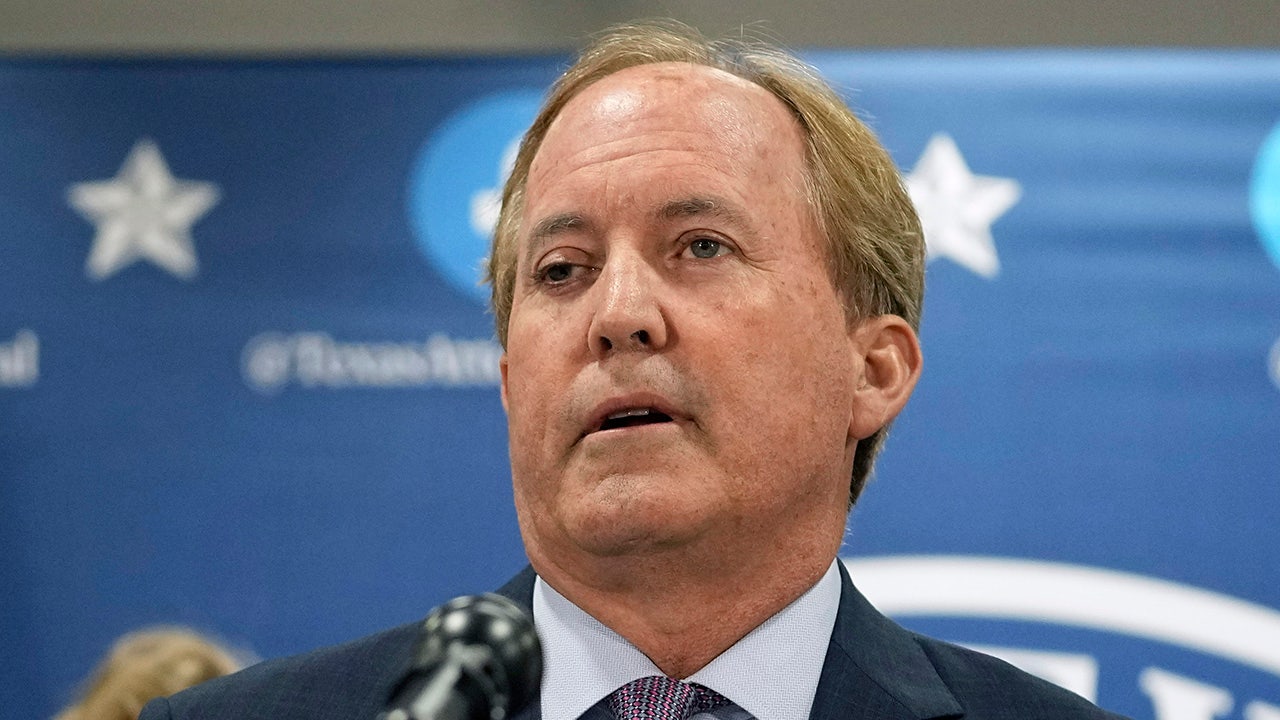Business
China Scuttles a $5.4 Billion Microchip Deal Led by U.S. Giant Intel

China has effectively scuttled a $5.4 billion deal by Intel, the Silicon Valley semiconductor giant, in the latest sign of the frayed business ties between China and the United States.
Intel, which has long had operations in China, said Wednesday that it had “mutually agreed” to terminate a planned merger with Tower Semiconductor, an Israeli chip manufacturer. The announcement came after China’s antitrust regulators failed to rule on the transaction before a deadline set by the companies.
The failure of Intel to complete the acquisition of Tower could send a further chill through American companies with deep ties in China, where it is becoming increasingly difficult to do business amid tensions between the two countries.
The planned merger, announced in February 2022, passed antitrust reviews in the United States and Europe. But it ran into a lengthy delay in China, where regulators review mergers of companies that earn a certain amount of revenue in the country.
Technology is the prime battlefield in the tense economic relations between China and the United States.
Beijing is deeply upset by an American-led set of international restrictions on the sale to China of the most advanced computer chips, which have military applications, and of the factory equipment to make such chips. Those restrictions were put in place in October. In a separate action, President Biden last week ordered a ban on certain new investments in sensitive Chinese technology.
China has condemned the moves as an effort by Washington to throttle its tech development and slow its economic growth.
Despite the raw tensions between the countries, their economies remain highly interconnected, dependent on one another’s supply chains, technology and investment money.
For Intel, China is both a major marketplace and place of business: In 2022, the company employed more than 12,000 people there, and made more than $17 billion in revenue, about 27 percent of its global total. It started doing business in China in the mid-1980s, with operations that include assembling and testing chips manufactured elsewhere.
Intel, which is struggling to regain a lead in chip production technology, hoped the merger with Tower would help accelerate a shift to become a major manufacturer for other designers of chips. Intel has previously mainly used its factories to produce chips it both designs and sells.
Tower, which has an office in Shanghai, was founded in 1993 and operates a relatively small chip manufacturing service compared with giants like Taiwan Semiconductor Manufacturing Company. Intel will pay Tower $353 million for failing to close the deal, according to a statement by Intel.
Intel’s inability to get the merger approved in China underlines what could become an increasingly hard choice for multinationals: They may need to choose between having operations in China or carrying out mergers and acquisitions around the globe. Such concerns could produce a further chill on foreign investment in China, which has already plunged this year because of geopolitical concerns.
The Chinese government agency that decides whether to approve global mergers, the State Administration for Market Regulation, is now “in an uncomfortable spotlight as a proxy for China’s commitment to market access for foreign investors,” said Han Shen Lin, the China country director for The Asia Group, an advisory firm in Washington.
Before the agency was established in 2018, global mergers were reviewed in China mainly by a unit of the Ministry of Commerce, which is dominated by civil servants with extensive international experience and contact with foreign businesses and governments.
The State Administration for Market Regulation, by contrast, is categorized within the Chinese bureaucracy as primarily a domestic agency, and its officials have shunned most contact with foreign governments, embassies or businesses.
Patrick Gelsinger, who became Intel’s chief executive in early 2021, has pushed to add what the industry calls chip foundry services, in part to attract U.S. government subsidies under legislation passed a year ago. He recently traveled to China to help get the Tower deal approved.
“We continue to drive forward on all facets of our strategy,” Mr. Gelsinger said in a statement on Wednesday.
Intel’s fabrication plants, or fabs, tend to specialize in advanced production processes used to make microprocessors and other digital chips. Tower, by contrast, is best-known for older technology that produces analog chips, which are used for jobs like amplifying signals and managing power in cellphones and other products.
The company now owns two fabs in Israel, two in the United States, three in Japan and is participating in a joint manufacturing venture in Italy.

Business
Cable giant Charter to buy Cox in a $34.5-billion deal, uniting providers that serve SoCal

Charter Communications and Cox Communications plan to merge in a $34.5-billion deal that would unite Southern California’s two major cable TV and internet providers to sell services under the Spectrum brand.
The proposed consolidation, announced Friday, comes as the industry grapples with accelerating cable customer losses amid the shift to streaming.
The companies could face even more cord-cutting after their long-time programming partner, Walt Disney Co., begins offering its ESPN sports channel directly to fans in a stand-alone streaming service debuting this fall.
If approved by Charter shareholders and regulators, the merger would end one of the longest TV sports blackouts.
Cox customers in Rancho Palos Verdes, Rolling Hills Estates and Orange County would finally have the Dodgers’ TV channel available in their lineups. For more than a decade, Cox has refused to carry SportsNet LA because of its high cost.
Charter distributes the Dodgers channel as part of a $8.35-billion television contract signed with the team’s owners in 2013. Charter has bled hundreds of millions of dollars on that arrangement and now offers the channel more widely via a streaming app.
The Atlanta-based Cox is the nation’s third-largest cable company with more than 6.5 million digital cable, internet, telephone and home security customers. Stamford, Conn.-based Charter has more than 32 million customers.
Charter dramatically expanded its Los Angeles presence in 2016 by acquiring Time Warner Cable for more than $60 billion.
The Charter-Cox combination would have 38 million customer homes in the country — a larger footprint than longtime cable leader, Philadelphia’s Comcast Corp.
“This transformational transaction will create an industry leader in mobile and broadband communication services and seamless video entertainment,” Charter Chief Executive Christopher Winfrey said in a conference call with analysts.
Winfrey would become the proposed entity’s CEO.
A major motivation for the deal was to be able to combine operations in Los Angeles, Orange and San Diego counties where both services currently operate and add attractive markets like Phoenix, Winfrey told analysts.
“Our network will span approximately 46 states passing nearly 70 million homes and businesses,” Winfrey said.
Cox is privately held. The billionaire Cox family, descendants of an Ohio press baron who bought his first newspaper in 1898, began acquiring cable systems in 1962 and has since held them with a tight grip. The Cox cable assets were long seen as a lucrative target.
Last year, Cox generated $13.1 billion in revenue and $5.4 billion in adjusted earnings before interest, taxes, depreciation and amortization.
“Cox was always the first name that would come up in consolidation conversations… and it was always the first name dismissed,” longtime cable analyst Craig Moffett wrote in a Friday research note. “Cox wasn’t for sale.”
Until it was.
In an unexpected twist, the name of the merged company would be changed to Cox within a year of the deal closing. However, its products would carry the Spectrum moniker.
The Cox family would be the largest shareholder, owning about 23% of the combined entity’s outstanding shares.
Charter shares got a slight bump on Friday’s news, climbing nearly 2% to $427.25.
“Cable is a scale business. [The] added size should help Charter compete better with the larger telcos, tech companies and [Elon Musk’s] Starlink,” said Chris Marangi, co-chief investment officer of value at the New York-based Gabelli Funds, a large media investor.
Adding the Cox homes will allow Charter to expand distribution for its El Segundo-based Spectrum News channel.
Charter said it would absorb Cox’s commercial fiber, information technology and cloud businesses. Cox Enterprises agreed to contribute the residential cable business to Charter Holdings.
Cox Enterprises would be paid $4 billion in cash and receive about $6 billion in convertible preferred units, which could eventually be exchanged into Charter shares. The Cox family would get about 33.6 million common units in the Charter Holdings partnership, worth nearly $12 billion.
The combined entity will absorb Cox’s $12 billion in outstanding debt.
Charter’s ability to navigate the challenged landscape was a factor in the family’s decision, said Cox Enterprises Chief Executive Alex Taylor, a great-grandson of the company’s founder, told analysts.
“Charter has really impressed us above all others with the way they have spent capital,” Taylor said. “In the last five years, they’ve spent over $50 billion investing” in internet infrastructure and building a wireless phone service.
“This deal starts with mobile,” cable analyst Moffett wrote. “Cox is relatively late to the wireless game. But that only means that the opportunity in [the combined companies’] footprint is that much larger.”
The companies said they could wring about $500 million a year in annual cost savings.
The combined company would have about $111 billion of debt.
Cox would have two directors on the 13-member board, including Taylor, who would serve as chairman.
Advance/Newhouse would keep its two board members. Advance/Newhouse would hold about 10% of the new company’s shares.
The transaction is expected to close at the same time as Charter’s merger with Liberty Broadband, which was approved by Charter and John Malone’s Liberty Broadband stockholders in February.
After the consolidation, Liberty Broadband will no longer be a direct Charter shareholder.
The Associated Press contributed to this report.
Business
Video: How Staffing Shortages Have Plagued Newark Airport

What’s causing major flight delays and disruptions at Newark Liberty International Airport? Niraj Chokshi, a reporter at The New York Times covering transportation, explains how a staffing shortage has contributed to the chaos and what’s being done to address it.
Business
L.A. council members were told a vote could violate public meeting law. They voted anyway

When Los Angeles City Council members took up a plan to hike the wages of tourism workers this week, they received some carefully worded advice from city lawyers: Don’t vote on this yet.
Senior Assistant City Atty. Michael J. Dundas advised them on Wednesday — deep into their meeting — that his office had not yet conducted a final legal review of the flurry of last-minute changes they requested earlier in the day.
Dundas recommended that the council delay its vote for two days to comply with the Ralph M. Brown Act, the state’s open meeting law.
“We advise that the posted agenda for today’s meeting provides insufficient notice under the Brown Act for first consideration and adoption of an ordinance to increase the wages and health benefits for hotel and airport workers,” Dundas wrote.
The council pressed ahead anyway, voting 12-3 to increase the minimum wage of those workers to $30 per hour by 2028, despite objections from business groups, hotel owners and airport businesses.
Then, on Friday, the council conducted a do-over vote, taking up the rewritten wage measure at a special noon meeting — one called only the day before. The result was the same, with the measure passing again, 12-3.
Some in the hotel industry questioned why Council President Marqueece Harris-Dawson, who runs the meetings, insisted on moving forward Wednesday, even after the lawyers’ warning.
Jackie Filla, president and chief executive of the Hotel Assn. of Los Angeles, said the decision to proceed Wednesday gave a political boost to Unite Here Local 11, which represents hotel workers. The union had already scheduled an election for Thursday for its members to vote on whether to increase their dues.
By approving the $30 per hour minimum wage on Wednesday, the council gave the union a potent selling point for the proposed dues increase, Filla said.
“It looks like it was in Unite Here’s financial interest to have that timing,” she said.
Councilmember Monica Rodriguez, who opposed the wage increases, was more blunt.
“It was clear that Marqueece intended to be as helpful as possible” to Unite Here Local 11, “even if it meant violating the Brown Act,” she said.
Harris-Dawson spokesperson Rhonda Mitchell declined to say why her boss pushed for a wage vote on Wednesday after receiving the legal advice about the Brown Act. That law requires local governments to take additional public comment if a legislative proposal has changed substantially during a meeting.
Mitchell, in a text message, said Harris-Dawson scheduled the new wage vote for Friday because of a mistake by city lawyers.
“The item was re-agendized because of a clerical error on the City Attorney’s part — and this is the correction,” she said.
Mitchell did not provide details on the error. However, the wording on the two meeting agendas is indeed different.
Wednesday’s agenda called for the council to ask city lawyers to “prepare and present” amendments to the wage laws. Friday’s agenda called for the council to “present and adopt” the proposed changes.
Maria Hernandez, a spokesperson for Unite Here Local 11, said in an email that her union does not control the City Council’s schedule. The union’s vote on higher dues involved not just its L.A. members but also thousands of workers in Orange County and Arizona, Hernandez said.
“The timing of LA City Council votes is not up to us (sadly!) — in fact we were expecting a vote more than a year ago — nor would the precise timing be salient to our members,” she said.
Hernandez said Unite Here Local 11 members voted “overwhelmingly” on Thursday to increase their dues, allowing the union to double the size of its strike fund and pay for “an army of organizers” for the next round of labor talks. She did not disclose the size of the dues increase.
Dundas’ memo, written on behalf of City Atty. Hydee Feldstein Soto, was submitted late in Wednesday’s deliberations, after council members requested a number of changes to the minimum wage ordinance. At one point, they took a recess so their lawyers could work on the changes.
By the time the lawyers emerged with the new language, Dundas’ memo was pinned to the public bulletin board in the council chamber, where spectators quickly snapped screenshots.
-

 Austin, TX1 week ago
Austin, TX1 week agoBest Austin Salads – 15 Food Places For Good Greens!
-

 Technology1 week ago
Technology1 week agoNetflix is removing Black Mirror: Bandersnatch
-

 World1 week ago
World1 week agoThe Take: Can India and Pakistan avoid a fourth war over Kashmir?
-

 News1 week ago
News1 week agoReincarnated by A.I., Arizona Man Forgives His Killer at Sentencing
-

 News1 week ago
News1 week agoWho is the new Pope Leo XIV and what are his views?
-

 Politics1 week ago
Politics1 week agoDepartment of Justice opens criminal investigation into NY AG Letitia James
-

 World1 week ago
World1 week agoNew German chancellor aims for stronger EU ties with France and Poland
-

 News1 week ago
News1 week agoJudge Orders Release of Rumeysa Ozturk, Tufts Student Detained by ICE














